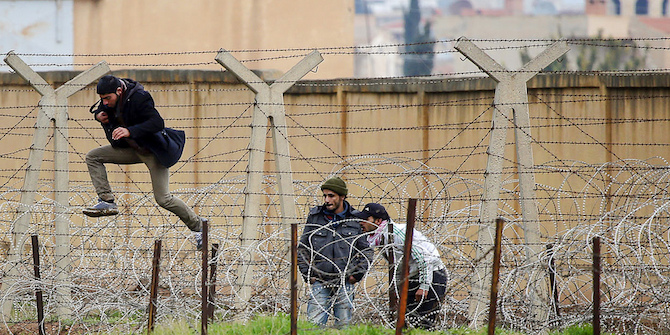by Marc Martorell Junyent
Seal’s dramatic history combines fascinating historical account of a decisive period in the history of Turkey with modern travelogue.
Adnan Menderes narrowly escaped death in a foreign land in February 1959, when he emerged almost unscathed from a plane crash in the vicinity of London’s Gatwick airport. He survived, but only to die on the gallows two years and a half later in Turkey, the country he had represented as prime minister for a decade. In his latest book, A Coup in Turkey: A Tale of Democracy, Despotism & Vengeance in a Divided Land, British writer Jeremy Seal sets about following the traces of a man whose rise and fall help to elucidate the trajectory of modern Turkey.
Menderes, the first democratically elected leader of the Republic of Turkey, had become increasingly authoritarian by the time he was ousted in a military coup. However, he still retained the support of his Democratic Party’s strongholds in rural Turkey, where Menderes’ challenge to the strict secularism imposed by Atatürk had been embraced. The Prime Minister did never forget the importance of catering to his electoral base. When an economic crisis – partly of his own making – hit Turkey in the late 1950s, the Turkish leader made efforts to guarantee that his constituency was relatively protected.
On the contrary, public servants and military men saw how their purchasing power was eroded by inflation. The tensions between the government and the military would grow exponentially over the years, and the Democratic Party mandated the police to spy on explicitly discontent officers. The coup-proofing strategy eventually failed and General Cemal Gürsel and his co-conspirators took power by force on 27 May 1960. Gürsel presided a military junta, the Committee of National Unity, that claimed to have intervened with the objective of reinstituting democracy in Turkey.
A Coup in Turkey is not a biography of Menderes, even though the book revolves around his figure, paying attention to both his personal and public life. His extramarital affairs are discussed, as well as his passionate political speeches and skilful strategising. Seal’s work can be better described as a deeply interesting meeting point between a historical account of a decisive period in the history of Turkey and a modern travelogue. The author, with an extensive background as a travel writer, invites the reader to move back and forth in time in his book. This is how we learn about Seal’s journey to visit the places and people that help him contextualise the story of Turkey’s first democratic experience.
The British author, however, faced several difficulties to physically engage with the traces of Menderes’ story. Trees have covered the area where the Turkish politician’s plane crashed on a foggy winter day. Thousands of kilometres away and two years later, the Committee of National Unity saw to it that the former prime minister would be executed and buried in the island of Imrali, far away from Turkish coasts. It was not until 1990 that Menderes and his Foreign and Finance Ministers – Rüştü Zorlu and Hasan Polatkan, the other two government members to be executed – were exhumed and Menderes’ remains found their resting place in a mausoleum in Istanbul.
Seal tracks down an impressive array of secondary actors who experienced first-hand the events that decisively marked Turkey as it entered the second half of the twentieth century. These are the people who speak for the key historical sites that nature and human action have silenced. People such as Margaret Bailey, who lived with her family in a house close to the forest where the plane carrying Prime Minister Menderes crashed. Her memory helps Jeremy Seal revisit the past, as we learn how the Baileys were the first to arrive to the accident spot and hosted the few surviving members of the Turkish retinue, Menderes among them and surprisingly calm.
But most of these secondary actors are obviously to be found in Turkey. Seal meets former Lieutenant Taşdelen, who six decades ago was tasked with guarding the most famous inhabitant of Yassiada, the prison island where the Democratic Party’s leaders were imprisoned and judged. The young soldier not only managed to surreptitiously take pictures of Menderes – some of which are included in the book and provide a glimpse into the last months of his life – but was also the first to realise that the imprisoned politician had attempted to commit suicide. Menderes was saved once again, but this time against his wishes. The man who had decisively shaped Turkey in the 1950s now found himself powerless and did not even enjoy sovereignty over his own life.
When considering the history of modern Turkey, it is tempting to draw parallelisms between Menderes’ Democratic Party rule and the current government of Erdoğan’s Justice and Development Party (AKP). Their electoral bases have common geographical and sociological features, and they share a propensity to go around the constitutionally secular nature of the Republic of Turkey. Moreover, they both became increasingly authoritarian after successive electoral successes. Erdoğan himself has fostered the comparison on different occasions. After his 2014 electoral victory, he expressed that his government was ‘realising Menderes dream’. The Democratic Party’s period in power portended long-lasting tendencies in the decades to come such as the intervention of the military in political life and the rise of political Islam.
Nevertheless, and despite Erdoğan’s claims of historical continuity, the period of Menderes’ government needs to be understood in the specific context that characterised 1950s Turkey. A context that is vividly presented in Seal’s impressive work. In A Coup in Turkey the reader will find a well-researched and thrilling book that provides a relevant approach to a relatively unknown period of Turkish history.







